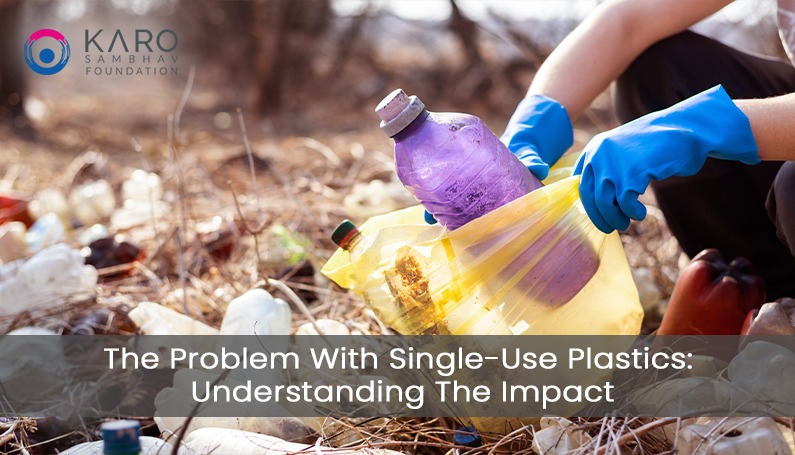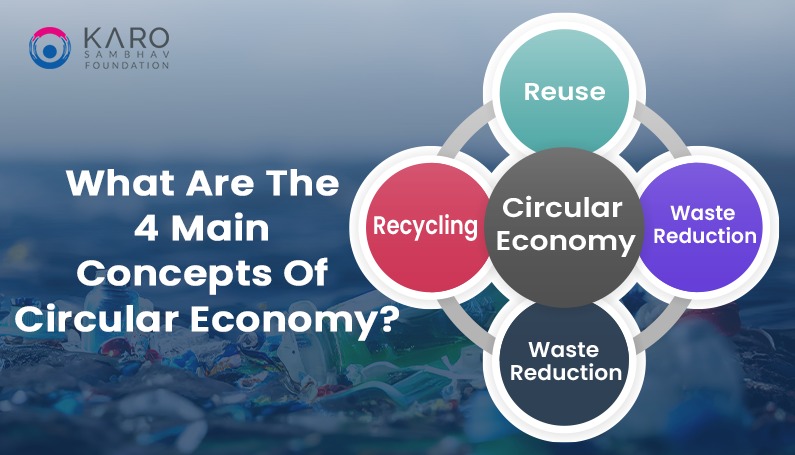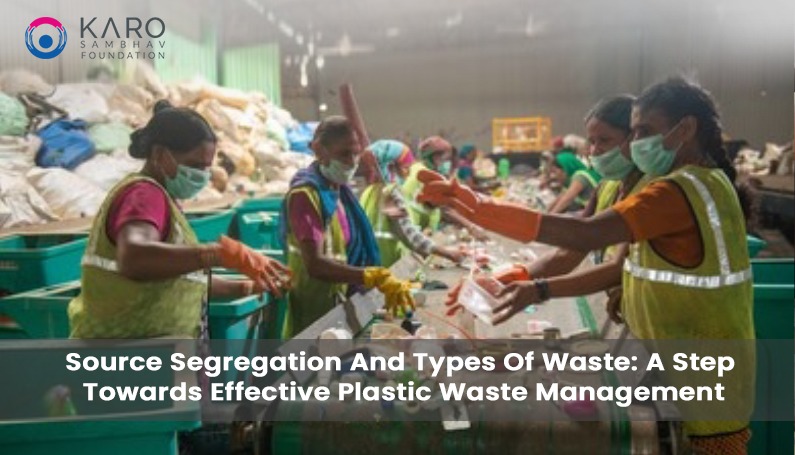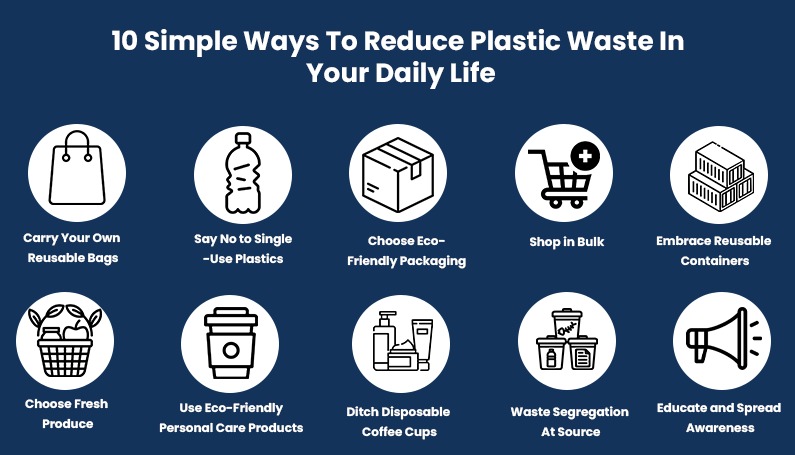July 14, 2023
What Are The 4 Main Concepts Of Circular Economy?The Problem With Single-Use Plastics: Understanding The Impact
- June 30, 2023
- /
- By Karo Sambhav Foundation
- Plastic Waste Management
- Plastic Waste Management in India
- Single Use Plastics

Single-use plastics have permeated every aspect of our daily lives, offering convenience and functionality. However, the widespread and unrestrained use of these disposable items has resulted in causing a detrimental impact on our environment and poses significant risk to human health. Plastic waste management has now emerged as a pressing global challenge that demands immediate attention and effective solutions. Karo Sambhav Foundation (KSF), a renowned organisation dedicated to waste management and enabling recycling in India, recognizes the urgency of addressing the issue of wastage of single-use plastics. In this blog, we will delve deep into the problem of single-use plastics, exploring their environmental impact, their persistence in the ecosystem, and their contribution to pollution.
Furthermore, by understanding the detrimental effects of single-use plastics, we can collectively work towards implementing sustainable practices and finding viable alternatives that will lead us to a cleaner and greener future. Join us on this journey as we uncover the truth behind single-use plastics and discover the steps we can take to make a positive impact on our planet.
The Problem with Single-Use Plastics
Single use plastics pose a significant threat to our environment, contributing to pollution, wildlife harm, and resource depletion. Their convenience comes at the cost of long-lasting environmental consequences. The major problems that come along with single use plastics is as follows:
Environmental Impact of Single-Use Plastics
Single-use plastics, such as plastic bags, straws, bottles, and packaging, are a major concern for the environment. These items take hundreds of years to break down and often end up in landfills or bodies of water, leading to pollution and harm to marine life. Plastic debris not only causes blockages in waterways, but also releases harmful compounds that disrupt the natural environment. The production of single-use plastic also contributes to carbon emissions, making the issue of climate change worse. Recognizing the environmental impact of single-use plastics is essential for understanding the urgent need to reduce and properly manage plastic waste.
Health Risks Associated with Single-Use Plastics
Single-use plastics can also have adverse effects on human health. Plastic items contain toxic chemicals, such as Bisphenol A (BPA) and phthalates, which can leach into food and beverages, posing potential health risks. These chemicals have been linked to hormonal disruptions, reproductive issues, and certain types of cancer. Moreover, microplastics, tiny particles that result from the breakdown of plastic, have been found in our food, water, and even the air we breathe. The long-term health effects of microplastic ingestion are still being studied, but early research raises concerns about their impact on human well-being.
KSF's Initiatives to Tackle Single-Use Plastics
Karo Sambhav Foundation recognizes the urgency of addressing the issue of single-use plastics and has taken significant steps to combat its negative impact. Through extensive research, awareness campaigns, and collaborations, KSF aims to drive sustainable plastic waste management practices. The foundation educates sanitation workers, communities, as well as policymakers about the importance of reducing plastic waste, promoting recycling, and seeking alternatives to single-use plastics. KSF also supports the establishment of collection mechanisms to create a conducive environment for waste management. Their efforts focus on raising awareness, driving behavioural change, and implementing practical solutions.
Sustainable Alternatives to Single-Use Plastics
To address the issue of single-use plastics, it is critical to investigate sustainable alternatives. Biodegradable and compostable materials, such as plant-based polymers, provide ecologically acceptable alternatives to single-use plastics. Furthermore, encouraging the use of reusable products such as cloth bags, stainless steel water bottles, and metal straws can help to lessen our dependence on throwaway things. Another critical step in lowering demand for single-use plastics is to encourage a transition towards a circular economy, in which products are designed for durability, reusability, and recycling. We can reduce the environmental effect of plastic waste and promote a cleaner, healthier future by adopting sustainable alternatives.
Conclusion
Single-use plastics are a complex issue with far-reaching effects for the environment, human health, and society. The Karo Sambhav Foundation (KSF) realises the significance of this issue and is working hard to find acceptable solutions. Our objective is to raise awareness about the harmful effects of single-use plastics on the environment and human health, while simultaneously supporting sustainable alternatives. Individuals, communities, and companies, in our opinion, must all assume collective responsibility and contribute to the elimination of plastic trash. We can make a major difference by making thoughtful decisions like limiting our use of single-use plastics, implementing reusable alternatives, and supporting recycling programmes. Let us join forces with KSF to build a future in which single-use plastics do not harm the environment and sustainable waste management practices provide a healthier environment for everybody.
Recent Posts


